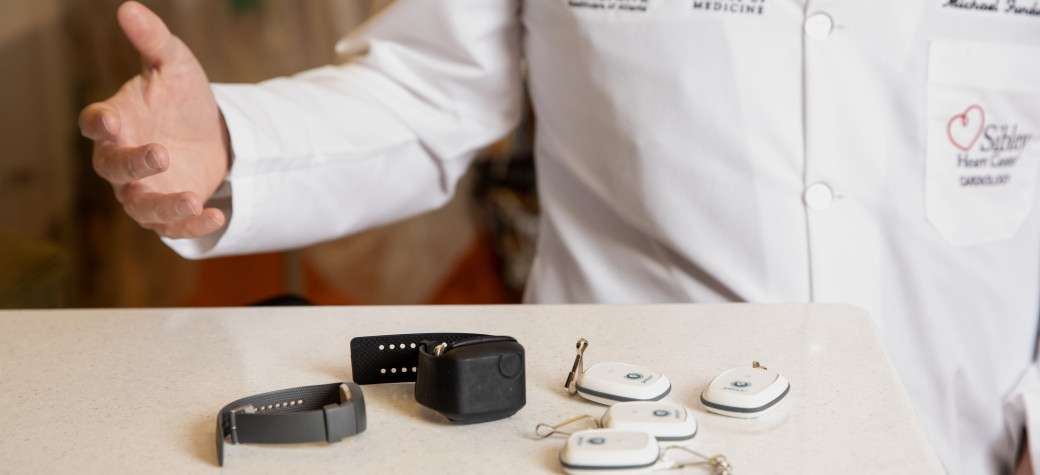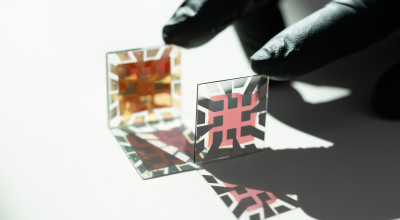
Healthcare worker burnout, a topic that received significant attention during COVID-19, continues to pose risks for the nation’s health and economic wellbeing.
In 2022, nearly half of healthcare workers reported feeling burned out, up from 32% in 2018, and the number of healthcare workers who intended to look for a new job increased by 33% over that same time period, according to a recent report from the Centers for Disease Control and Prevention (CDC). Annual burnout-related turnover costs are estimated to be $9 billion for nurses and $2.6 billion to $6.3 billion for physicians, per the U.S. Surgeon General.
To address this challenge, the Georgia Tech Research Institute (GTRI), Children’s Healthcare of Atlanta and Emory University’s Nell Hodgson Woodruff School of Nursing have conducted a study using wearable sensors to better understand how the interplay of workload, stress, and sleep contribute to an elevated risk of burnout among healthcare workers and how to mitigate those risks going forward.
The group recently measured real-time movement patterns of physicians and nurses in the cardiac intensive care unit (CICU) at Children’s and collected data on their stress levels, work and sleep cycles, healthcare delivery and perceived workloads. The goal of the study is to develop a methodology that can be used by other healthcare systems across the state to minimize turnover costs by better predicting and addressing factors that trigger burnout.
“Our ultimate goal with this project is to be able to offer our methodology framework to other healthcare systems throughout Georgia so that they can identify and address the specific challenges they are facing on a more granular level,” said Khatereh Hadi, a senior research scientist at GTRI who is leading this project.
To measure stress, workload and sleep among the study participants, the team used actigraphy sensors developed by Empatica, a spin-off of Massachusetts Institute of Technology (MIT) that designs and develops artificial intelligence (AI) systems to monitor human health through wearable sensors.
“These sensors are among the few on the market that let you directly download the data you collect,” explained GTR Senior Research Scientist Matthew Swarts who led the sensor development aspects of this project.
The participants also wore tags that were connected to ultra-wideband (UWB) sensor systems installed in the ceiling of the CICU to track their movements throughout their shifts.
“Because UWB takes up more radio frequency space, it avoids interference issues that affect other technologies such as Wi-Fi and Bluetooth. This allowed us to have more penetration and better accuracy,” Swarts said.
The study collected data on 40 total participants, who were evaluated over a four-week time period. The team also used the NASA Task Load Index (NASA-TLX), a widely used assessment tool that rates perceived workload, to gather data on the participants’ workload perceptions.
Paula Gomez, a GTRI senior research engineer who led the development of the project’s research methodology, said it was rewarding bringing the theoretical aspects of this project into practical application.
“Since GTRI is the applied research arm of Georgia Tech, it is really important for us to have access to a real-world environment to test and validate the theoretical research,” Gomez said.
GTRI conducted this study with Dr. Michael Fundora, a pediatric cardiologist at Children’s who specializes in congenital heart disease and clinical research, and Christina Calamaro, the Director of Nursing & Allied Health Research and Evidence Based Practice at Children’s and an associate professor at Emory’s Nell Hodgson Woodruff School of Nursing.
Fundora and Calamaro noted that current data collection methods that examine healthcare worker burnout are done retroactively and may miss certain nuances that are crucial for developing a comprehensive understanding of the issue.
“A lot of the literature that's been done in this area looks at big data sets that, for the most part, aren’t in real time” said Calamaro. “This is one study that’s able to quantify what are the factors that may impact care at the current time and can set the stage, with the use of technology, for giving us a better measurement of what issues nurses and physicians are facing, versus going back and doing a secondary analysis of big data.”
While burnout is commonly perceived as just affecting those experiencing it, if left unchecked, it could also lead to diminished patient care and higher mortality rates, said Fundora.
“People talk about burnout in the sense that it's about the individual, and that's certainly important,” Fundora said. “But we conducted this study to understand how burnout also affects our patients because that's the only way I believe that we're going to get to the root of the problem.”
Now that the data has been the collected, it will be analyzed and interpreted before potential solutions are evaluated. The team agreed that the interdisciplinary nature of the study will help them generate more impactful solutions.
“As a physician, working on this study opened my eyes to everything I didn’t know about nurses – they are operating very sophisticated, complex equipment and nearly everything they do in the ICU has a life-or-death impact,” said Fundora. “The solution-oriented approach of GTRI also gave me a fresh perspective.”
Calamaro added: “I think every healthcare study should have an engineer involved in some way because they see things that we as healthcare professionals don’t. It's like, I never thought of that.”
Writer: Anna Akins
Photos: Sean McNeil
GTRI Communications
Georgia Tech Research Institute
Atlanta, Georgia
The Georgia Tech Research Institute (GTRI) is the nonprofit, applied research division of the Georgia Institute of Technology (Georgia Tech). Founded in 1934 as the Engineering Experiment Station, GTRI has grown to more than 2,900 employees, supporting eight laboratories in over 20 locations around the country and performing more than $940 million of problem-solving research annually for government and industry. GTRI's renowned researchers combine science, engineering, economics, policy, and technical expertise to solve complex problems for the U.S. federal government, state, and industry.



